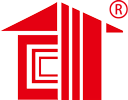Lida Group China Prefabricated House Supplier | One-stop Solution for Modular House, Container House!  Marketing@lidajituan.com
Marketing@lidajituan.com
Remote Workforce Housing: Modular Solutions For Efficient Living
The rise of remote work has significantly changed the way we live and work. As companies embrace telecommuting and flexible work arrangements, the need for remote workforce housing has increased. Modular housing solutions are becoming increasingly popular as a cost-effective and efficient way to provide accommodation for remote workers in various industries.
Benefits of Modular Solutions for Remote Workforce Housing
Modular solutions offer numerous benefits when it comes to providing housing for remote workforces. One of the key advantages is the speed of construction. Modular homes can be built in a fraction of the time it takes to construct traditional homes, making them an ideal choice for companies that need to quickly provide housing for their remote employees.
Another benefit of modular solutions is their cost-effectiveness. Traditional construction can be expensive, especially in remote locations where labor and materials may be scarce and costly. Modular homes are often more affordable to build and can result in significant cost savings for companies looking to house their remote workforce.
In addition to cost and speed, modular housing solutions are also highly customizable. Companies can choose from a variety of designs and floor plans to meet the specific needs of their remote workforce. Whether it's single-family homes, multi-family units, or dormitory-style accommodations, modular solutions offer flexibility and versatility in design.
Designing Efficient Living Spaces for Remote Workers
When it comes to designing efficient living spaces for remote workers, there are several factors to consider. The layout and functionality of the space are crucial to ensure that remote employees have a comfortable and productive living environment. Modular solutions allow for the creation of well-designed living spaces that maximize the use of available square footage.
In addition to layout, the interior design of remote workforce housing is also essential. Creating a welcoming and comfortable environment can have a positive impact on the well-being and productivity of remote workers. By incorporating elements such as natural light, modern finishes, and ergonomic furniture, companies can create spaces that feel like home for their employees.
Another crucial aspect of designing efficient living spaces for remote workers is sustainability. Modular housing solutions are often more environmentally friendly than traditional construction methods, with reduced waste and energy consumption. Companies can choose eco-friendly materials and energy-efficient appliances to minimize their environmental impact while providing quality housing for their remote workforce.
Challenges and Solutions in Remote Workforce Housing
While modular solutions offer many benefits for remote workforce housing, there are also challenges that companies may face. One common issue is the availability of land for building modular homes, especially in remote or rural areas. Companies may need to work with local governments and landowners to secure suitable sites for housing their remote employees.
Another challenge in remote workforce housing is the need for infrastructure and amenities. Remote locations may lack essential services such as water, electricity, and internet connectivity, making it challenging to provide comfortable living conditions for employees. Companies can overcome this challenge by investing in off-grid solutions, such as solar power and water treatment systems, to ensure that remote workers have access to essential services.
In addition to infrastructure, security is another important consideration in remote workforce housing. Companies must prioritize the safety and well-being of their employees by implementing security measures such as surveillance cameras, access control systems, and on-site security personnel. By addressing these challenges proactively, companies can create a secure and comfortable living environment for their remote workforce.
The Future of Remote Workforce Housing
As the trend towards remote work continues to grow, the demand for efficient and cost-effective housing solutions for remote employees will only increase. Modular housing is well-positioned to meet this demand, offering a sustainable, customizable, and affordable option for companies looking to provide accommodation for their remote workforce. By leveraging the benefits of modular solutions and addressing the challenges associated with remote workforce housing, companies can create a productive and comfortable living environment for their employees, no matter where they are located.
In conclusion, remote workforce housing presents a unique set of challenges and opportunities for companies seeking to support their remote employees. Modular solutions offer a practical and efficient way to provide housing for remote workforces, with benefits such as speed of construction, cost-effectiveness, and customization. By designing efficient living spaces, addressing challenges in infrastructure and security, and embracing sustainability, companies can create a comfortable and productive environment for their remote workforce. As the remote work trend continues to evolve, modular housing solutions will play an essential role in meeting the growing demand for remote workforce housing.
We welcome you to contact us for more information of
prefab house and look forward to working with you !
About Lida Group
CONTACT Lida Group Container House Supplier
Tel: +86-532-88966982 88965892
Whatapp/Wechat: +86-13793209022
Email: Marketing@lidajituan.com
Website: Prefabricated House Supplier/ Container House China / China Prefabricated House
Head Office: 5th Floor, Building A, Darron Center,No.180,Haier Road, Qingdao, 266000,China

Lida Group
Tel: +86-532-88966982 88965892
Whatapp/Wechat: +86-13793209022
Email: Marketing@lidajituan.com
Website: Prefabricated House Supplier/ Container House China / China Prefabricated House
Head Office: 5th Floor, Building A, Darron Center,No.180,Haier Road, Qingdao, 266000,China



